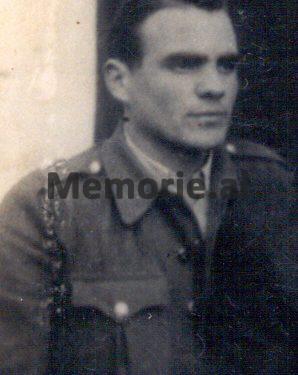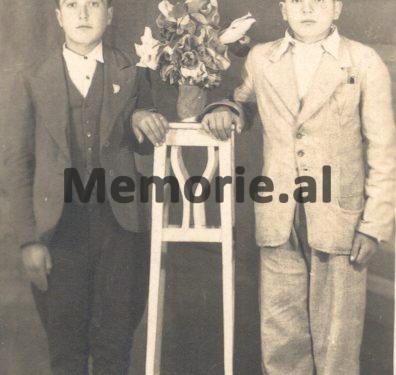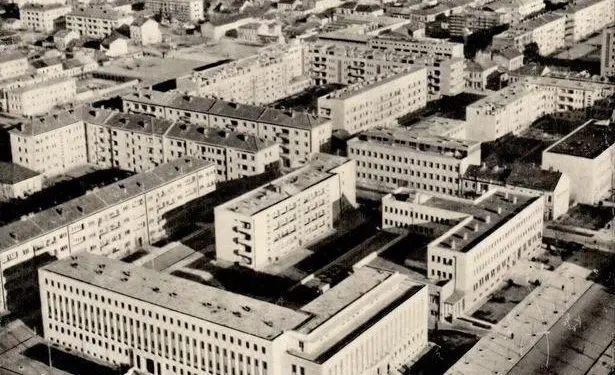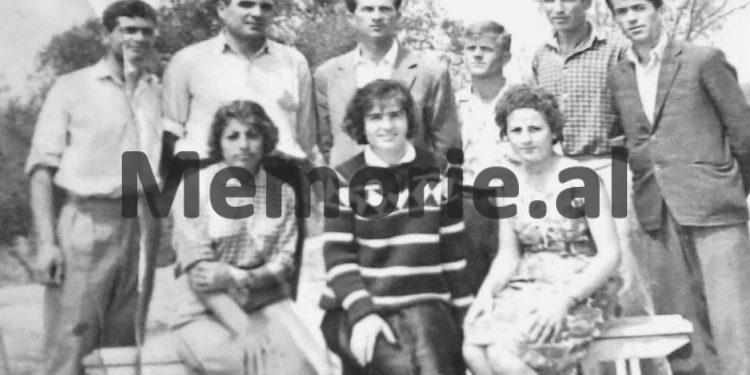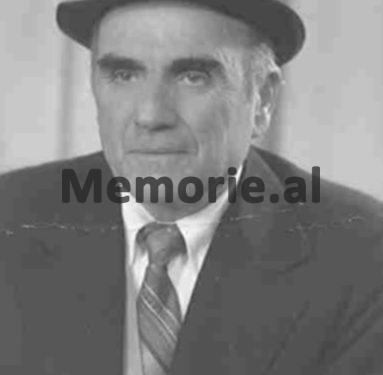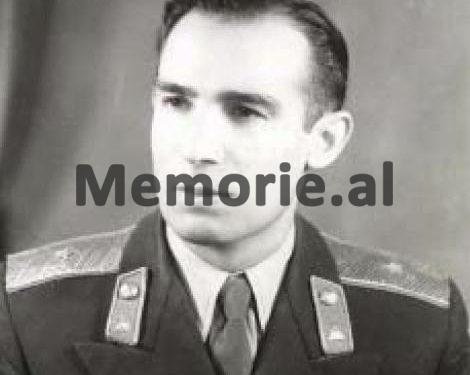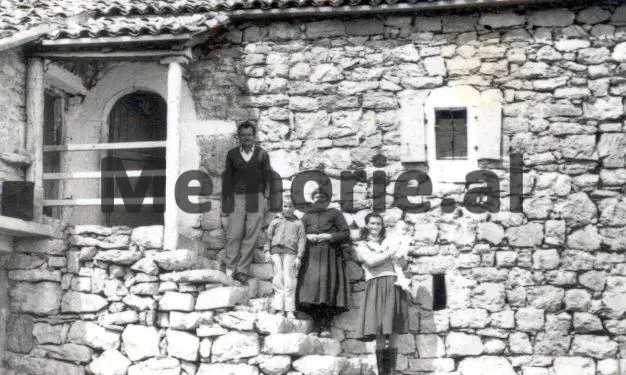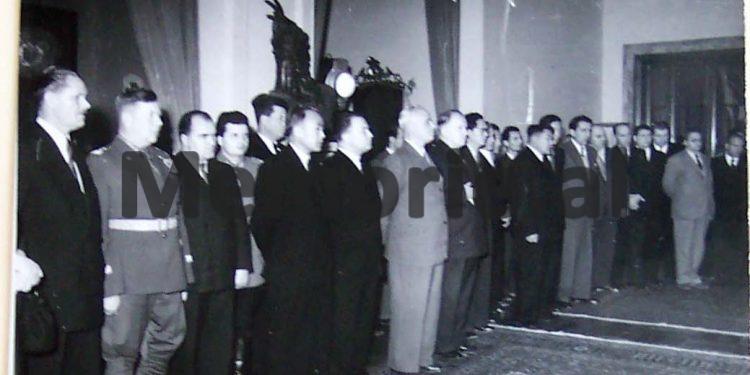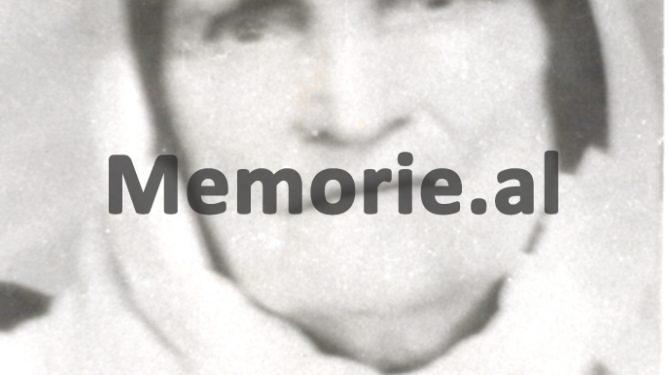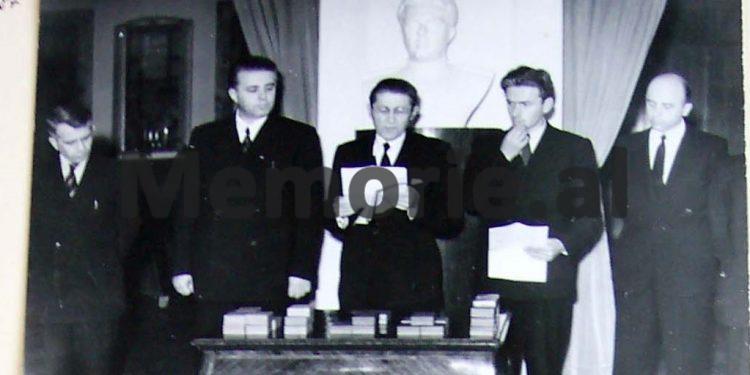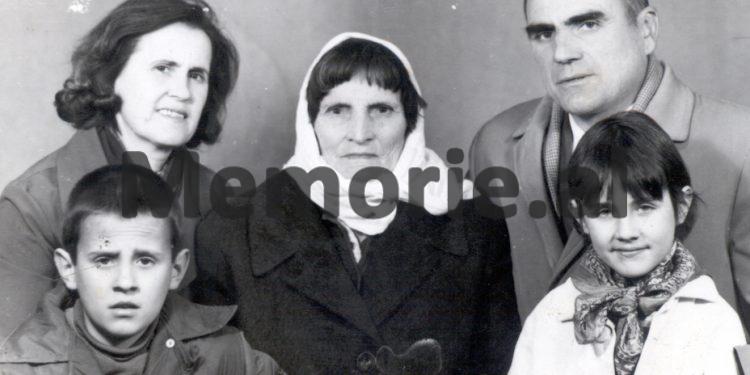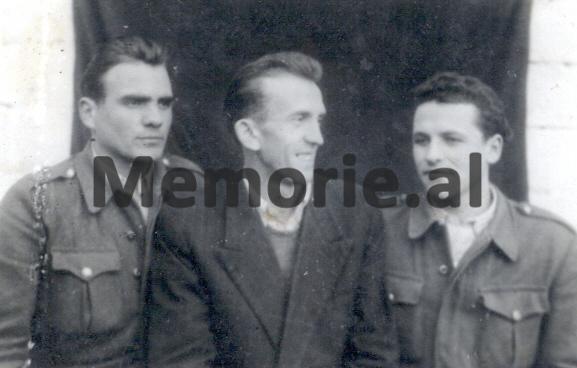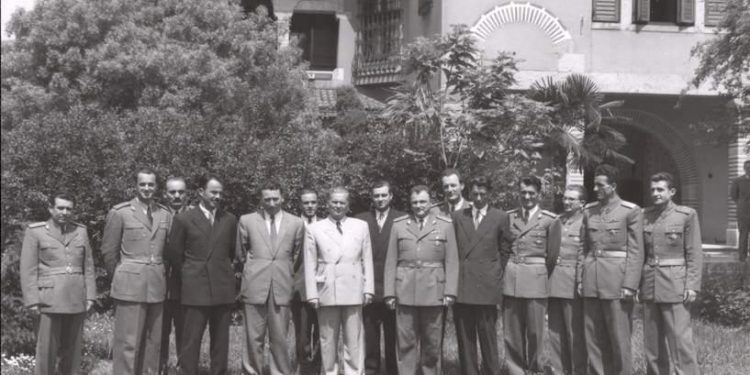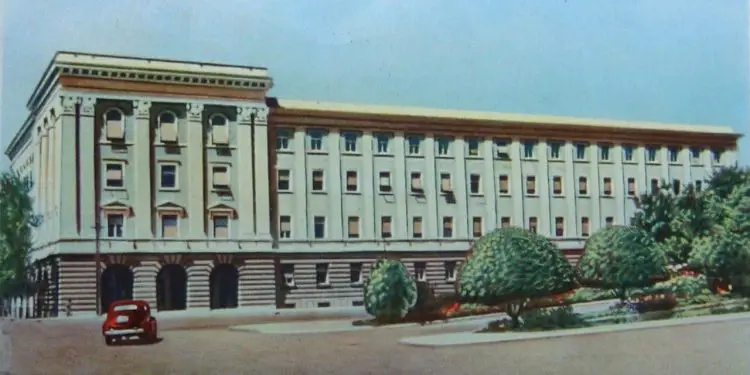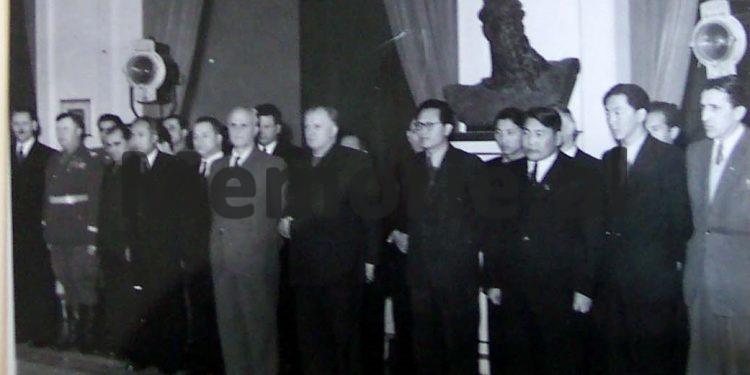Dashnor Kaloçi
Memorie.al publishes the unknown story of the Gjeloshi family from Triesi, Montenegro, through the rare testimonies of Zef Dod Gjeloshaj, one of her suckers, who in January 1950, after the conflicts his family had with the Tito regime , where some of their sons were killed, as well as the event when the Gjeloshi family fought for several hours against the Serbo-Montenegrin military forces, after refusing to hand over a Serbian officer (grandson of Djoko Mirasovic, “Hero of the Peoples of Yugoslavia” who has busts in Montenegro), who had asked for their trust, he was forced and fled Montenegro, coming to Albania as a political emigrant. Zefi’s “stabilization” in the Llakatund camp in Vlora, where the communist regime of Enver Hoxha kept isolated about 800 Yugoslav citizens of Albanian origin, who due to the discriminatory policy of the Titoist regime towards the Albanian population living in their ethnic lands in Montenegro, Kosovo and Macedonia, as well as Rankovic’s crimes against them, had fled and come to Albania. Zefi was appointed a teacher in the Lushnja district, where in 1951, the Ministry of Internal Affairs summoned him to Tirana, where two officers, Petrit Arbana and Vilson Pecani, covering Yugoslav emigration to Albania, charged him with a secret mission, sending him in Yugoslavia together with the Serbo-Montenegrin Colonel, Petar Blazovic, who had resigned as UDB Chief for Montenegro and fled. What tasks did Zef Gjeloshaj perform in Yugoslavia, how did the secret mission assigned to him by the Ministry of Interior in Tirana end and why was he sentenced to 15 years in prison in Albania, accused of killing the UDB colonel with his own hand?!
At the beginning of January 1950, as Zef Gjeloshaj from Triesi, Montenegro, forced by the Serbo-Montenegrin persecution and genocide, was crossing the Yugoslav border to enter Albania, he had never thought that in his homeland, for him who had woven those beautiful dreams, would be arrested and sentenced to 15 years in political prison. Moreover, that political sentence given by the Military Court of Tirana, would have to do with a very serious and very absurd accusation, as Zefi was accused of: “he had killed with his own hand a Yugoslav UDB colonel “!
Shortly after he escaped from Yugoslavia and came to Albania, at the request of senior officials of the Ministry of Internal Affairs, he was assigned a special mission. The mission consisted of illegally entering Zefi, Montenegro, together with UDB Colonel Peter Blazovic, to carry out some special tasks for the communist regime of Enver Hoxha.
Who was Zef Gjeloshaj, what was his past and how did he manage to escape from Yugoslavia and come to Albania in 1950?! Who was the UDB colonel, Peter Blazovic, where he served until 1948, and why in that period did he leave the post of UDB chief for Titograd and was on the run? How did the Albanian intelligence authorities find out Blazhoviç’s whereabouts in the forests of Montenegro and how did the agents manage to contact him?! What secret mission was assigned to Lekovic by Mehmet Shehu and why did he remain silent during the meeting with the Soviet ambassador in Tirana? Why did the Albanian state allow the two Yugoslav colonels to be repatriated to Yugoslavia after their release from prison, and why would Zefi be acquitted in 1984?
Regarding all these and other events and facts from his life, as well as the history of his family, although at a young age and with a life full of vicissitudes and great sufferings, Zef Gjeloshaj reminded him with details and details. everything had passed, telling us publicly in this interview that we are publishing in several issues, exclusively for Memorie.al
follows from the previous number
Mr. Gjeloshaj, can you tell us more specifically, who were the people who got in touch with the Montenegrin colonel?
At that time, the Albanian Intelligence, the State Security Directorate operating outside Albania, sent a special group to contact Colonel Blazovic in the forests of Montenegro, where he was on the run, and at the head of that group that left Tirana, was Jole Markovic, who at that time was acting head of Yugoslav Emigration in Albania. One of the reasons Markovic was sent to head the group was that he had a brother-in-law, Colonel Blazovic. After this meeting, it became possible for him to come to Albania, as they pulled him and brought him to the border, and then to Tirana.
In what period did Colonel Blazhovi erd come to Tirana and by whom was he received?
As far as I remember, after being handed over to the relevant State Security authorities, who had come to meet him in the border area of Shkodra, he was quickly brought to Tirana and contacted by the highest authorities of the Ministry of Internal Affairs and Infrom. His arrival in Tirana was considered so important that the head of the Informbureau, Judin, came to meet him especially from Moscow.
Where was Colonel Blazhovi mba held during his stay in Tirana and how was he treated?
As a start I wanted to say that his arrival in Albania was initially kept very secret, because his arrival was known only to the highest heads of the Ministry of Internal Affairs covering the Intelligence sector, as well as some leaders of the Central Committee of the ALP, dealing with or covering Yugoslav political emigration. Immediately after his arrival in Tirana, Blaovovi sistem settled in several special villas that were under the administration of the State Security. He was given special treatment and, in most cases, Colonel Blazhovi. Was accompanied by General Zoi Themeli, who at the time was the Chief of Albanian Political Intelligence.
How long was Blazovic held in Albania and what was required of him by the Albanian Political Intelligence?
Colonel Blazhovi u was held until the beginning of September 1951, and at that time Intelligence asked him to be sent on a top-secret mission to Yugoslavia, and his companion would be me.
But why were you chosen to accompany Colonel Blazovic on that secret mission in Yugoslavia?!
Yes, as I said and a little above, one of the main reasons was the fact that I knew the language and the places where that mission would be performed.
Who and when was called to carry out this mission together with Colonel Blazovic?
In 1951, while I was working as a teacher in the villages of Lushnja, I was notified to report to the Ministry of Internal Affairs in Tirana. After the announcement, I came to Tirana and to the ministry, I was received by the secretary of the Central Committee of the ALP, Spiro Pano, together with Vilson Pecani who covered immigration in the Central Committee.
Only they were both received, or were there others?
Along with both of them, some Soviets were present, who introduced themselves as comrades of the Informbureau.
What about Colonel Blazovic, was he there with you?
Yes, of course, Colonel Blazovic, who was a man in his 60s at the time, was with me.
Did you know Blazhovi më before or did you see him for the first time?
I had heard his name in Montenegro, but I saw him there for the first time, and he seemed like a good man.
How was Colonel Blazovic introduced to you?
Spiro Pano and Wilson Pecani, after introducing me to the Soviets of the Informbureau, met me and introduced me to Blazhovi, telling me that he was a good communist comrade and that he fought for internationalist ideals. They also told me that he had acquaintances with the highest authorities in Montenegro, and even with its Federal President, Blaoo Jovanovi…
How long did they stay in that office and what else was said to them there?
I stayed there for two hours and after the presentation, Spiro and Wilson communicated to me the task of the special mission, being his companion, as he did not know Albanian well, while I was fluent in Serbo-Croatian.
What was this mission and what were the tasks given to it?
As a start, I was told that the leader of the group (as they called this group) would be Blazovic, while I would be under his orders. One of the main tasks assigned to us was the establishment of anti-Tito communist communist cells in Yugoslavia, which would operate under the orders of the Informbureau. Likewise, another task they gave us was that: if he were to meet the high authorities of that country, as ministers or even generals, even down to Blazho Jovanoviçi, I should break away and not listen to the conversations of them. After that, they gave us a large sum of money and told us that for everything, we had to pay in cash, so as not to be indebted to the Serbo-Montenegrin villagers, who would shelter us in the mountains.
Were these the only tasks assigned to him for this secret mission?
Yes, but other than that, I was convinced that Colonel Blazhoviç had been given letters and messages to be sent to Yugoslavia, even by Enver Hoxha himself.
Do you remember and can you tell us anything more concrete about the tasks assigned to you in that secret mission that you would carry out in Yugoslavia?
One of the main tasks given to us at that time was this: “It is better to make friends with the cipher of the Titograd Military Division, than to make 40 ordinary people for yourself. There with him you must persevere and do your best to make friends with him as much as possible”!
After these assignments were given, what happened to you next?
After giving us all the specific instructions and necessary advice for the special secret mission we would carry out in Yugoslavia within the Informbureau, UDB Colonel Blazovic and I were kept for about two weeks in some secret villas in Tirana, which were used by the Albanian intelligence services for their needs.
What did you do during those two weeks that you stayed in those premises, were you charged with any other preparations within the mission that you would carry out?
During those two weeks that we stayed in the secret premises of Tirana, we did not undergo any special preparation. This was completely unnecessary because we were very clear about the tasks we were going to perform and they did not need any further preparation. But during those days we stayed in Tirana, they brought us literature from those sent by Informbyroja from Moscow, which were against the policy pursued by the Tito regime. This literature was every day for us.
Did you have contact with other people?
We had constant contacts, because during all those days, Colonel Blazhovi, came to meet many of the senior cadres of the Central Committee of the ALP, as well as senior military of the Ministry of Interior of the Directorate of Intelligence, with whom he talked during and in all these conversations I was present performing the role of translator.
If you remember, what was discussed between them?
The talks were very different, but mainly the relations between Albania, Yugoslavia and the Soviet Union. This prevailed in all conversations.
What about other people you had contacts with in those days?
I remember that during those two weeks of our stay in the secret villa waiting to leave for Yugoslavia, a driver from the Ministry of the Interior often came, under the pretext that he was a standby driver and was waiting for his bosses. I was not told anything about his mission, but it was not difficult to understand that he had a mission from the Albanian Intelligence, to make propaganda to Colonel Blazhovi thënë, telling him that: “the Tito regime in Yugoslavia was in the grip last, while Albania was advancing, following the teachings of Moscow and the great Stalin ”!
When did you leave Tirana for Yugoslavia and how did you cross the border?
In early September 1951, Colonel Blazhovi dhe and I were informed that we were getting ready to travel overnight to the border with the former Yugoslavia. After we got ready, arranging all the materials we would need for our mission, as well as the relevant weapons, they put us in a “Jeep” of the Ministry of Interior, where there were also two Albanian Intelligence officers, and together we traveled to direction of Shkodra. Our mission was very secret and even the Shkodra Branch of Internal Affairs was not aware of this. This became clear as the car passed directly without any stops, towards the road of Hani i Hotit and we got out of the cars, near Hani i Hotit, where the two Albanian Intelligence officers accompanied us to Mount Greçe, in the area of Kelmendi , where we slept one night in a secret place, which from afar, was guarded by soldiers. The next day, the two Albanian Intelligence officers took us to the border line, which we crossed without any problems, because with their order from Tirana, the border was left completely free, without guards.
After crossing the border, in what direction did you travel and what was your itinerary on Yugoslav soil?
According to the very clear tasks given to us in Tirana, our goal was to go in the direction of the village of Piper, which was located beyond Moraca and the road we would do was through mountains and high forests, which was very difficult to t ‘spend the day and not the night, as we were compelled to travel.
When you got there and along the way were you in danger of being discovered by the guards?
Although we walked for days and nights through the mountains and forests, avoiding many dangers and in the cold, it was making even though it was September, we could not reach the designated place.
Why could not you arrive?
After a long journey with many dangers, UDB Colonel Peter Blazovic and I stayed for days on Mount Leva-Reka. We got stuck there badly, we were short of water, we had food for a few more days. We agreed to go down to the Leva-Reka River to fetch water, and after a long journey, I filled the gourds in the river and returned to the place where I had left the colonel. But to my surprise, I could not find the colonel in the designated place, in the cave where I had left him.
What happened?
I do not know, I did not leave the place without looking, both in the cave and outside it, but I did not find it!
What about the materials you had taken with you, to the place where you were staying, in the cave?
I found nothing there, there was no sign! He had taken with him all the equipment we had, such as binoculars, automatic weapons, grenades, money, and everything else.
What did you do next when you did not find the colonel there?
Since I did not find the colonel in the place I left, I hid somewhere not far from this place, hoping that I could connect with him again. But that reception was in vain and the next day, I decided to withdraw from that province I did not know and travel to other Albanian territories of Montenegro, places I knew well. My goal was to perform some of the other tasks assigned to me in Tirana.
What were they and did you perform these tasks?
Those tasks were not very important, as they were in the background, in the mission they had assigned us.
After performing them, what did you do?
After successfully completing some of the tasks, I left for Hani i Hotit, where I had to cross the state border to enter Albania.
Where and how did you cross the border?
I crossed the border in a place that had been assigned to us since Tirana, near Hani i Hotit. There I went and handed myself straight to the border post, where according to the orders I had received, I gave you the number (code) and after that, they contacted the Ministry of Internal Affairs, to send me the car that would take me to Tirana. The next day, after the car arrived with two Intelligence officers, I traveled with them to Tirana.
Where were you sent and who received you?
As soon as we arrived in Tirana, I was immediately sent to the Ministry of Internal Affairs, where I was received by Vilson Pecani, Petrit Arbana and some State Security officers. Along with them were some employees of the Central Committee of the ALP, covering the Informbureau sector.
What did they say when they saw you alone, without Colonel Blazovic?
In the presence of all those persons, I reported telling in detail and accuracy the whole event, how it had happened, starting from our entry into Yugoslav land and the only return without the colonel. Memorie.al
Continues tomorrow




